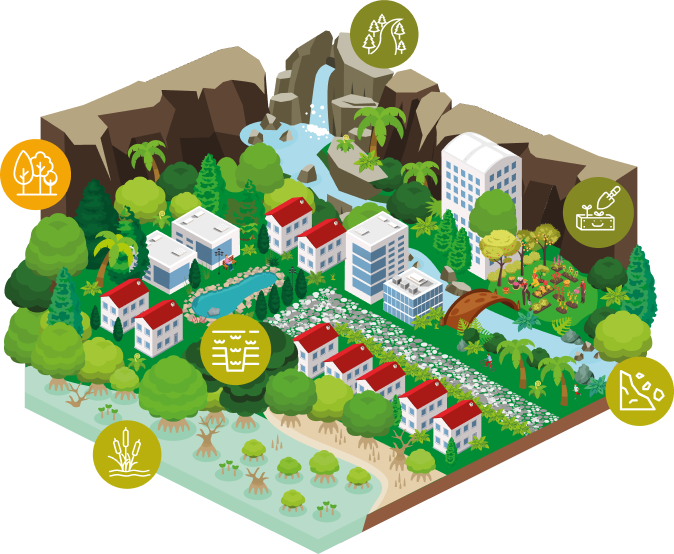
More resilient cities against climate change through of Nature-Based Solutions
Nature4Cities approach
The Nature4Cities (N4C) project supports national and local governments to accelerate climate action from cities by protecting and/or restoring ecosystem services through Nature-based Solutions (NbS).
The project promotes:
Planning tools for the urban adaptation using analysis of the vulnerability and climate risks in cities.
Identification of urban NbS for the adaptation and its integration into the urban development planning.
Strengthening policies and institutional frameworks for the implementation and scaling of NBS in cities.
Strengthening partnerships between public and private actors key to accelerate the adoption of NbS.
Defining climate financing strategies through mechanisms public, private and mixed financial innovators for the implementation and NBS sustainability.
In which cities is N4C implemented?
Camagüey y Manzanillo, Cuba
Santiago de los Caballeros, Dominican Republic
Ciudad de Guatemala, Guatemala
La Lima y El Progreso, Honduras
Santo Domingo, Ecuador
Durazno y Rivera, Uruguay
How are NBS integrated in cities?
NBS play a key role in reducing vulnerability and risks related to climate change in cities. Urban NBS protect ecosystems at the urban and watershed scale so that they can provide services such as water flow control, thus reducing the risks of flooding and water scarcity, erosion control to prevent landslides, and temperature control to protect against heat waves.
Drainage of water through areas permeables that infiltrate the rainfall.
Temperature control thanks to the provision of shade and absorption heat from the foliage.
The resilient orchards that provide an alternative source of food and can use drip irrigation and/or rainwater collection.
The provision of quality water for human consumption thanks to ability to regulate the forests.
Erosion control and prevention landslides through vegetation on slopes and in riparian areas.
Decreased risk of upside sea level, coastal erosion or violent tides through mangroves and coral reefs.














